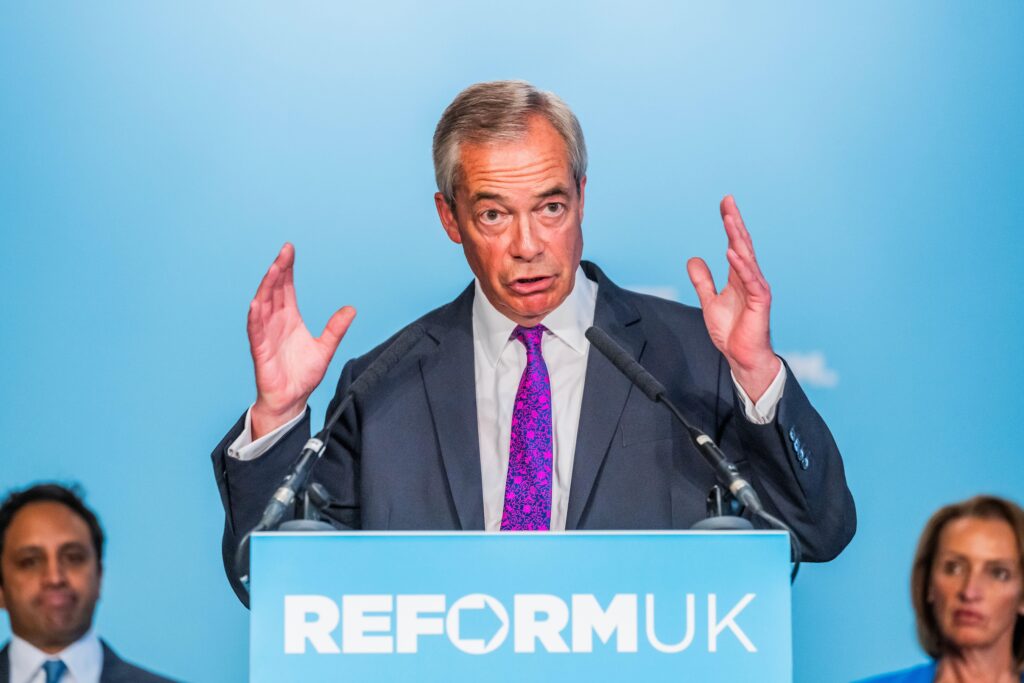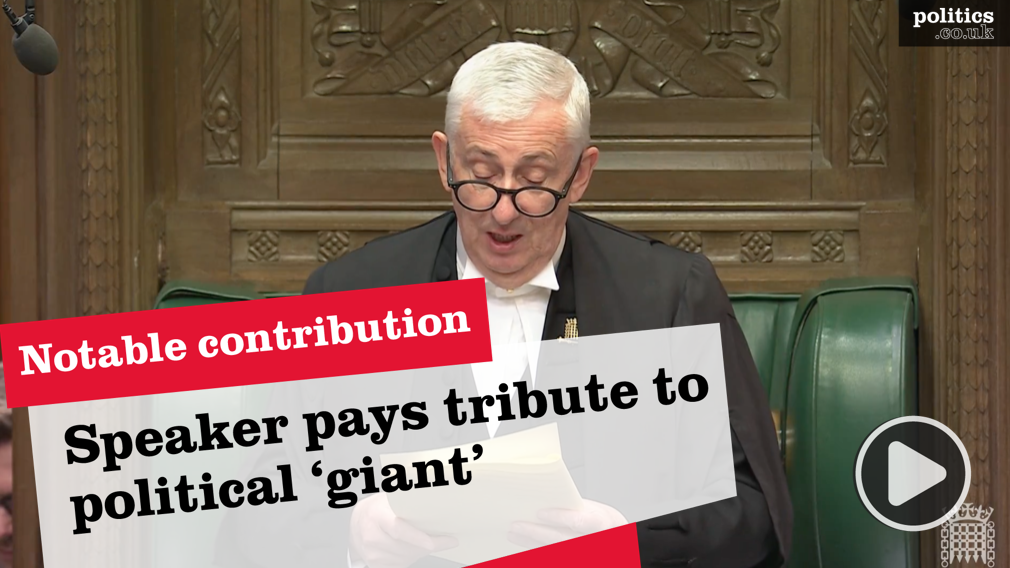It took the power of Andy Burnham’s example to tame Robert Jenrick. Expectations heading into the Conservative Party’s annual conference suggested the shadow justice secretary would continue to strut his stuff in front of his activist admirers. But Jenrick, by his usual insubordinate standards, was a model of servility.
For this, Kemi Badenoch likely has the Greater Manchester mayor to thank. Burnham landed in Liverpool last week with a transparent agenda to destabilise the Labour leadership; every fringe event marked another symbolic incursion on the Starmer premiership. The prime minister broke the siege with a well-received keynote speech that targeted Reform UK and featured some precise swipes at Burnham’s pretensions.
Jenrick, a strategic mind, chose not to risk comparisons with the Greater Manchester mayor’s botched putsch.
Burnham and Jenrick perform corresponding roles in the internal dramas of their parties. Both are possessed by a palpable ambition, and aren’t afraid to flaunt it; wear the scars of a leadership campaign (two in Burnham’s case); have been on ideological journeys, cementing their popularity among party activists (several in Burnham’s case); once sat around the cabinet table; and articulate analyses of their party’s position that resonate with the activist soul.


Jenrick and Burnham represent parallel phenomena: independent but dynamically aligned. The Conservative pretender showed uncharacteristic restraint this conference season – having witnessed his Labour counterpart flaunt his way into obscurity. The result is the same: Starmer and Badenoch both saw their authority enhanced at the expense of their rival claimants.
It’s been a poor conference season, then, for those who would be king.
***Politics.co.uk is the UK’s leading digital-only political website. Subscribe to our daily newsletter for all the latest news and analysis.***
The art of pretending is in its timing. Leadership aspirants face a lethal paradox. Hesitate, and you risk missing an opportunity to sack the throne. But forcing the question can prove politically fatal. You risk exposing your designs.
The conspirator must maintain a fine balance. Constructive ambiguity sustains the mythology of a saviour-in-waiting. Theirs is a state of permanent preparation.
Burnham and Jenrick’s challenge extends beyond convincing activists they’d be an improvement on the incumbent leader. (Polling suggests they have already succeeded in that regard.) They must persuade the party’s kingmakers that the realisation of their tantalising potential is worth the trauma of regicide.
The shrewdest pretenders manoeuvre and cajole their party into taking a path it would refuse were the destination – regicide – ever spelt out explicitly. They engineer the circumstances whereby their elevation is not condemned as a treacherous plot, but received as a welcome inevitability. That is how a pretender defies the famous maxim, bloodying the knife and claiming the crown.
Andy Burnham, suffice it to say, did not display the requisite subtlety in his conference contributions. Whatever his intent, his public posturing belied his strained protestations of innocence. Ambition was read into his every action, but still, he persisted in delivering his damning appraisal.
The ‘King of the North’ arrived at the scene of his first conference intervention shadowed by a royal court comprising photographers, a security detail and his political counsel. In an address ostensibly about electoral reform, Burnham took aim at what he termed a “climate of fear” within the party. He never directly walked back his comments, but the days that followed were marked by a broader strategic retreat.
Having recommitted himself to the Greater Manchester mayoralty and backed Starmer to remain prime minister, Burnham cut an isolated figure in his conference exit. The King of the North departed just minutes before the PM’s keynote speech, flanked by two anonymous aides.
The narrative arc of his conference was encapsulated by these contrasting images: his regal entrance, with the eyes of conference upon him, and his humble, defeated departure.
In politics, it is so easy to learn the wrong lessons from teachable moments. Jenrick would have taken note of Burnham’s spectacular overreach, and it surely informed his obsequious manner at Conservative conference.
Jenrick either overplayed his hand in the preceding months, or underplayed it in Manchester. Whatever the case, the lack of continuity was immediately conspicuous. “There was a leadership election and the party made its choice”, Jenrick told one fringe event. “Kemi is our leader. I am in her shadow cabinet. I would not have chosen to serve in the shadow cabinet if I didn’t believe in Kemi, if I didn’t want her to succeed, if I were not rooting for her and trying to support her in every way that I can.”
The stance presented a clear path for Badenoch to outperform expectations with her conference address. Indeed, Jenrick’s own podium contribution was seriously underpowered – echoing his sermon at the Conservative Party’s 2024 fête. (The shadow justice secretary’s rise has been powered by a canny social media strategy; it’s noteworthy that he has not risen to the set-piece opportunities afforded to him).
***Politics.co.uk is the UK’s leading digital-only political website. Subscribe to our daily newsletter for all the latest news and analysis.***
Conference season provided a genuine pivot in the political narrative: Burnham and Jenrick’s leadership tilts are – temporarily at least – on hold. Starmer and Badenoch have secured a welcome period of silence, albeit only partially of their own accord.
Both return to Westminster next week sporting something of a post-conference glow. Starmer hinted suggestively at a symbolic purpose for his government. Badenoch proved her party still has a pulse. These are considered wins for parties polling a collective 37%.
The PM and LOTO have been afforded space to define their own agendas, free from damaging questions about their fragile authority. The same could not be said heading into conference season. Starmer can continue to tell his story. Badenoch will begin to draw the dividing lines implied by her policy blitz.
Yet the political solace is in its own way deceptive. Burnham’s insurgency was a convenient smokescreen; it allowed the Labour leadership to style its critics as irredeemably disloyal. It distracted from the more subtle but no less instructive manoeuvring of Shabana Mahmood and Wes Streeting. And Burnham’s challenge obscured the party contest that is actually playing out within Labour.
Lucy Powell’s likely election as deputy Labour leader will not, as her rival apparently expects, plunge the party into a fresh civil war. (Bridget Phillipson’s contention that Powell has no “clout” and would single-handedly foster division is contradictory, of course.) But the deputy leadership result, Powell’s all-but-inevitable elevation, will be interpreted as a rebuke. And Starmer’s prospective deputy has said she would use her perch to act as “bridge” between the Labour leadership and party activists – thinly veiled code for championing a leftward tilt.
The stage is set for future flashpoints. Starmer’s focus will now turn to internal discontent ahead of the autumn budget and the fraught path to digital ID – before pivoting to the local elections in May.
The local elections will beg ever more existential questions of the Conservative Party’s standing in this radically reformed political landscape. Badenoch succeeded in securing a temporary reprieve at conference, no more: a stay of execution snatched from the jaws of regicide. Any ephemeral narrative of resurgence will not survive contact with the local elections in May.
The post-conference glow is something of a smokescreen, therefore. For both Keir Starmer and Kemi Badenoch, the uncomfortable truth is that their moments of maximum danger are still to come.
Josh Self is editor of Politics.co.uk, follow him on Bluesky here and X here.
Politics.co.uk is the UK’s leading digital-only political website. Subscribe to our daily newsletter for all the latest news and analysis.












